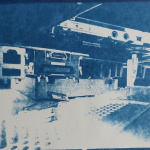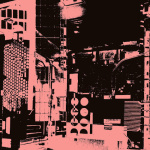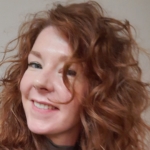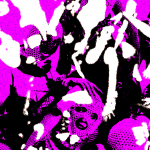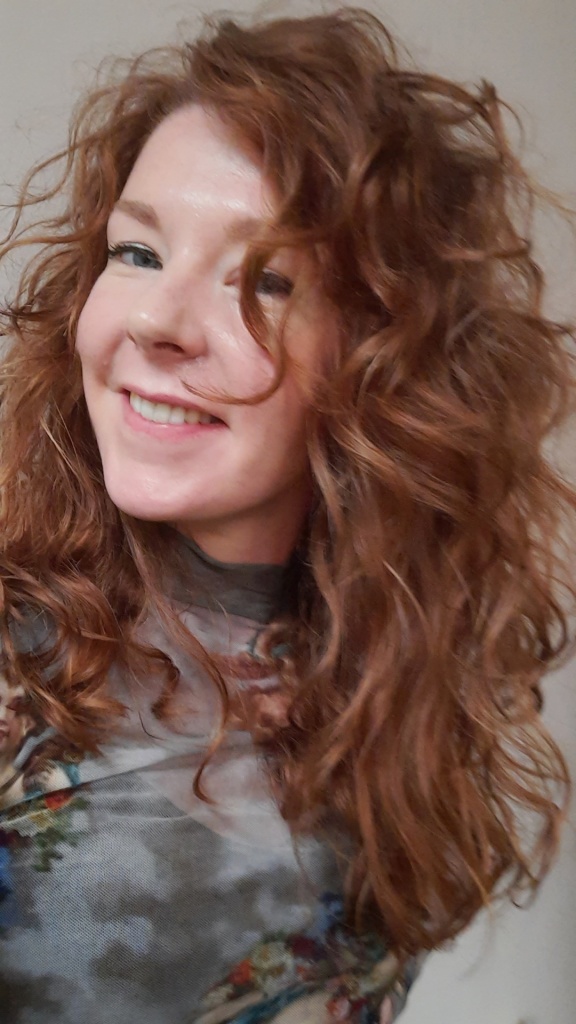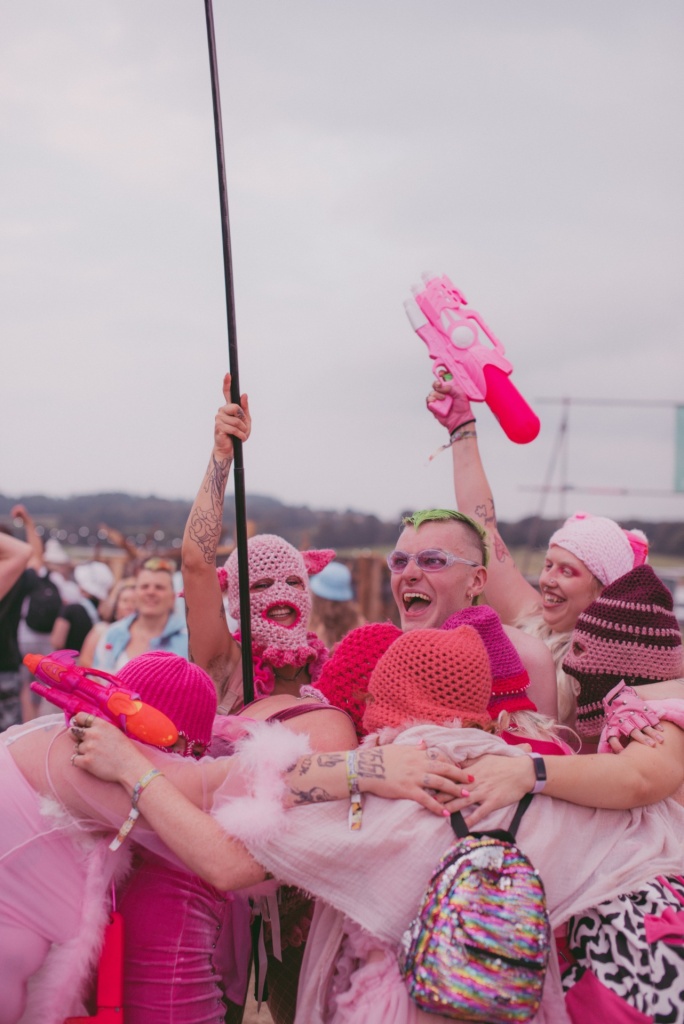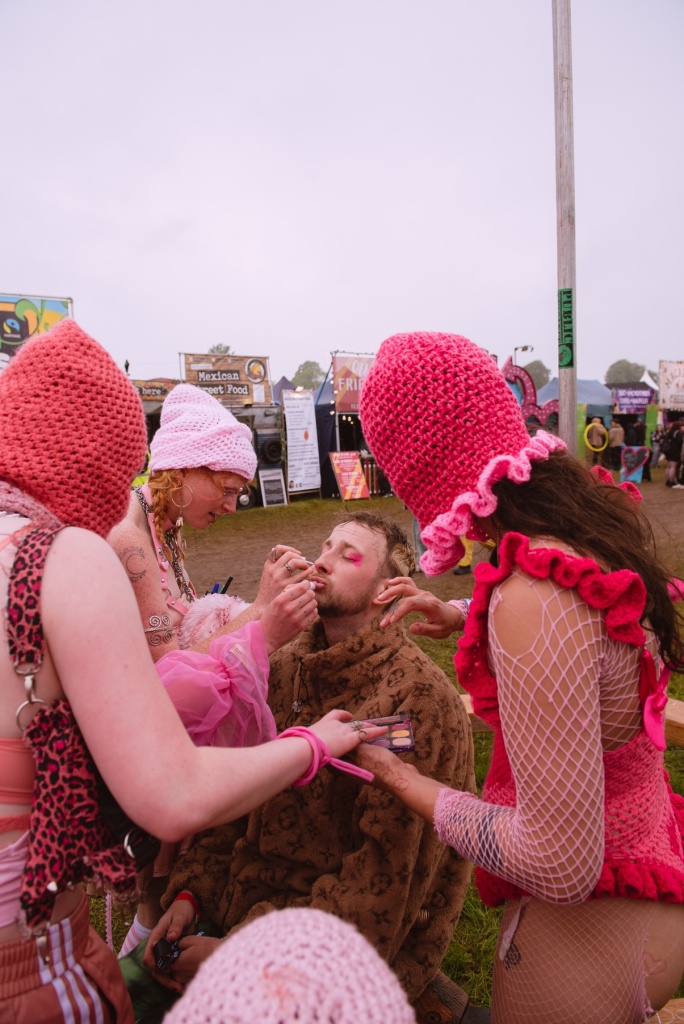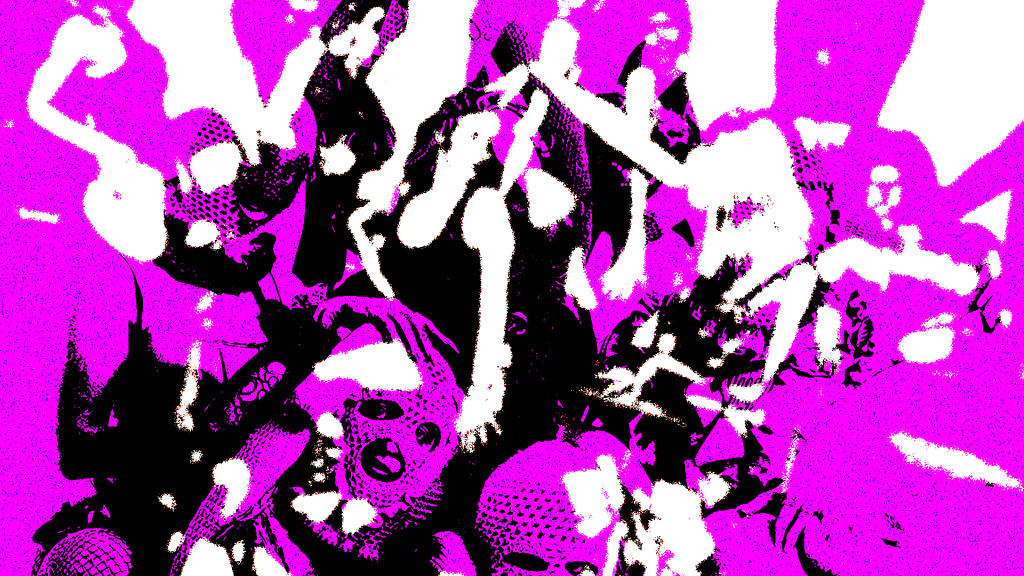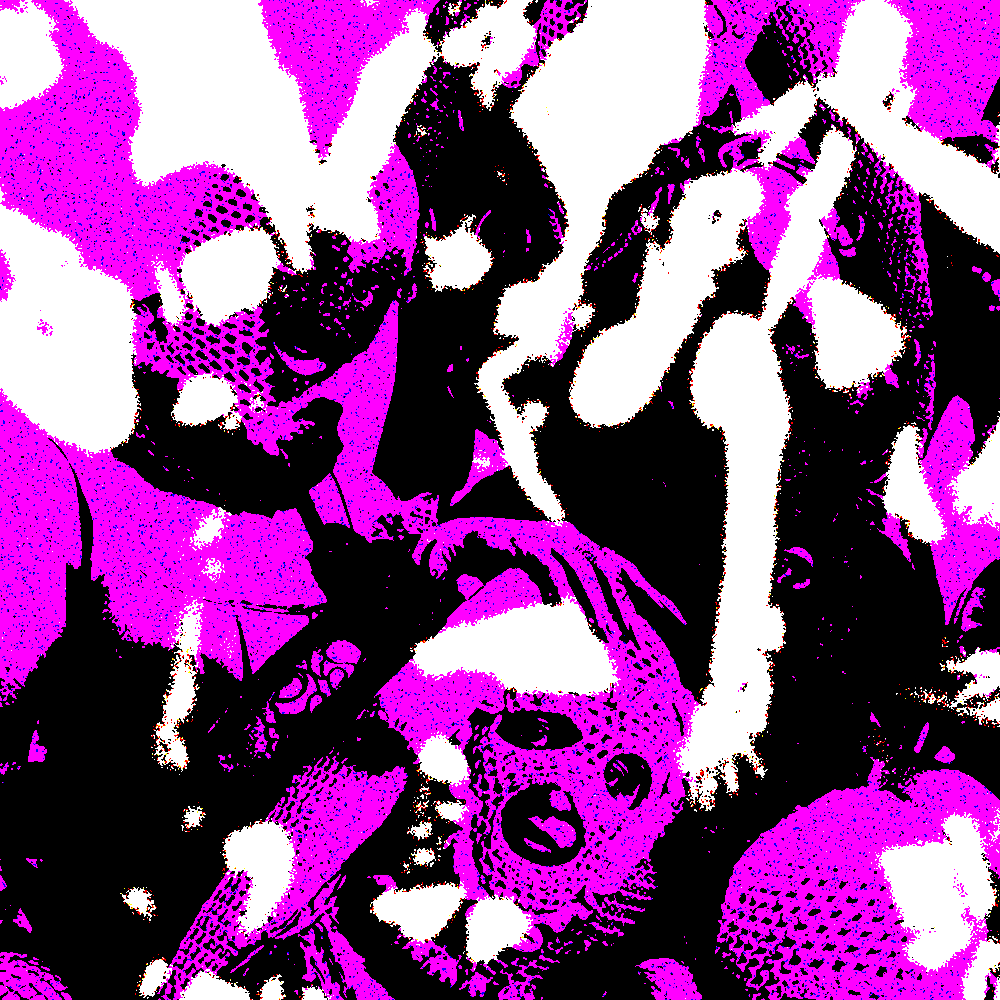Humans are sociable creatures, right? But what if your version of sociability, belonging and self expression doesn’t quite exist yet? Meet Ever Glowing and Cute Cartel, two collectives founded by Louise Brown and Sidonie Brough, respectively, created based around their passions for performance, mutual support and connection based on shared values.
The founders spoke with us about their aims, experiences and thoughts on culture around performance, identity and image, both online and off.
Ever Glowing
A recent BIMM Bristol graduate, Louise is the founder of Ever Glowing, a classic and neo burlesque collective based in Bristol where you can ‘connect to your sensuality and sexuality in a safer space’. A strong advocate for body positivity and mental health, Louise teaches burlesque, runs wellness retreats and also performs across the UK.
What is your take on the influence that tech companies have in creating a community for performing arts and self-expression?
Tech has a beautiful advantage: the internet has connected us all in a way like never before. As a dance teacher, it has really helped me to gain more exposure to my craft; I’ve discovered even more about burlesque, pole and other sub genres of sexualised dance. This has enriched my knowledge and allowed me to fuse elements of all of these genres into the neo-burlesque styles that I teach today.
As a burlesque performer, how important is community?
Community in burlesque is essential. We’re breaking the rules in society and we need the community to create that safe space in order to do so. Community facilitates access to likeminded people, and is also a way of showing love and support. It allows you to feel connected and share information, instead of simply turning up to a dance class and going home afterwards. The digital realm can amplify connection too and interweave faster communication to strengthen in-person interactions.
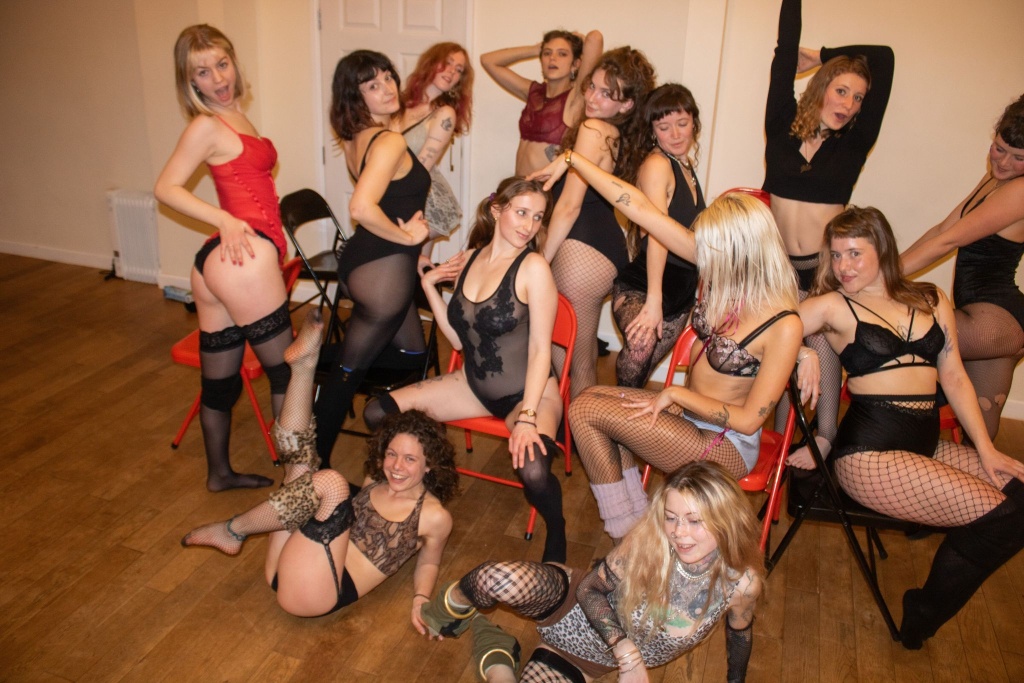
Have you ever had negative experiences of building community online?
Ever Glowing’s profile on Instagram has been shadow banned (for over a year now). Since that happened, we can’t reach anyone that isn’t already a follower. Everything that I post has only organic reach which limits others who are looking for this space.
I understand the principle behind shadow banning on social media, but the Ever Glowing content that is affected is not consistent with similar content posted by famous people, which is never shadow banned, rather promoted.
The rules and guidelines on what is and isn’t acceptable isn’t specific or clear. So how are we to know what to change? Words and hashtags that are shadow banned aren’t shared with the public.
From my understanding, words that are empowering and express femininity can be included. The word ‘sensuality’ and ‘sexuality’ is shadow banned, based on my experience and others within the community. We empower people to feel good, in a different way from what we have been told. And I guess Instagram doesn’t like it.
How and why did you create the Ever Glowing community?
I was based in an off grid community, then I moved to the city to start uni. I felt lonely. I also just noticed a total lack of female-led sober spaces. I started meeting lots of women in the same boat as me- and to be honest, I was shocked, as many of these people were so creative, vibrant and interesting yet didn’t have many friends.
This is where the role of tech in creating a community comes in: it’s free to create a social media profile and it’s free to check out and engage with a dance community online, without committing to going in-person or buying tickets to a class. I decided to have a presence on social media and sell tickets via income tiers to my burlesque workshops on EventBrite.
How do you think people trust that Ever Glowing is a safe space?
Maybe they’ve experienced a class, perhaps they’ve heard of us through word of mouth then checked Ever Glowing out on Instagram. Social media is almost like proof to affirm that we are a safe space. When I first created content for Instagram, it was just photos from a shoot I did with a friend and some videos of me dancing. It was all very authentic and looked great. But I realised that to build trust in my newly-forming community, I would need to make sure that the language I was using was consistent (to build a recognisable tone of online voice) and that I would need to shift the focus onto the people who came along.
Smiley faces, people backstage, dancing- content that showed people comfortable in the act of dance. I also made a commitment to engage with comments and questions on posts and in my DMs – responsiveness and transparent communication are all part of building trust in a community.
View this post on Instagram
Do you think Ever Glowing challenges norms of female-identifying performance, either IRL or online?
Yes. Dance communities can be competitive, focus on technique and place an importance on getting fit or having an athletic figure. And then there is the endless messaging we receive about unachievable and, often, contradictory beauty standards, contorted further by what we see on social media and in mainstream advertising.
Ever Glowing welcomes everyone; we want to be a safer space where people can connect through dance, and learn burlesque, a beautiful art form, maybe give the opportunity to play around and create a burlesque character through body language, postures, songs.
We also encourage body confidence and we are aware that some people might struggle with body dysmorphia or other issues that might limit how comfortable they feel taking part in classes or performances. What I try to teach is that it’s not the aesthetics of dance that is important: it’s how it makes you feel. Instead of technical terms, I use authentic language to describe the routines, which tries to help people connect to their sensuality, to connect to their feelings, to feel strong and healthy, not the aesthetics of the movement or how you look when you dance.
I am aware that it is hard to convey a breadth of diversity over my social media presence. In my online community, I do my best to feature content that covers diversity of age, courses and to make sure the content tells a true story. There’s a lot of pressure to make sure videos and images are ‘high quality’ or high resolution, but content that speaks to people is the antithesis of this.
For example, I’ve made a conscious effort to include not only coverage of our finishing course but also of people taking beginner classes or people getting ready backstage. This showcases the range of skills that Ever Glowing welcomes, that it is not all glitz and glam, that we are definitely not a ‘cool girls club’ and that learning to dance at any level is a journey that is fun and supportive in this community.
What would you like to see in the future for female dancers and performance-centred communities?
I would like to see a shift away from competition and to remove the idea that certain people can have access to dance. Take away beauty standards as obstacles, money as a barrier; I strive to make Ever Glowing accessible and affordable, and to remove barriers to movement for people who don’t fit beauty standards. There’s still a long way to go, so we need to keep bigging each other up.
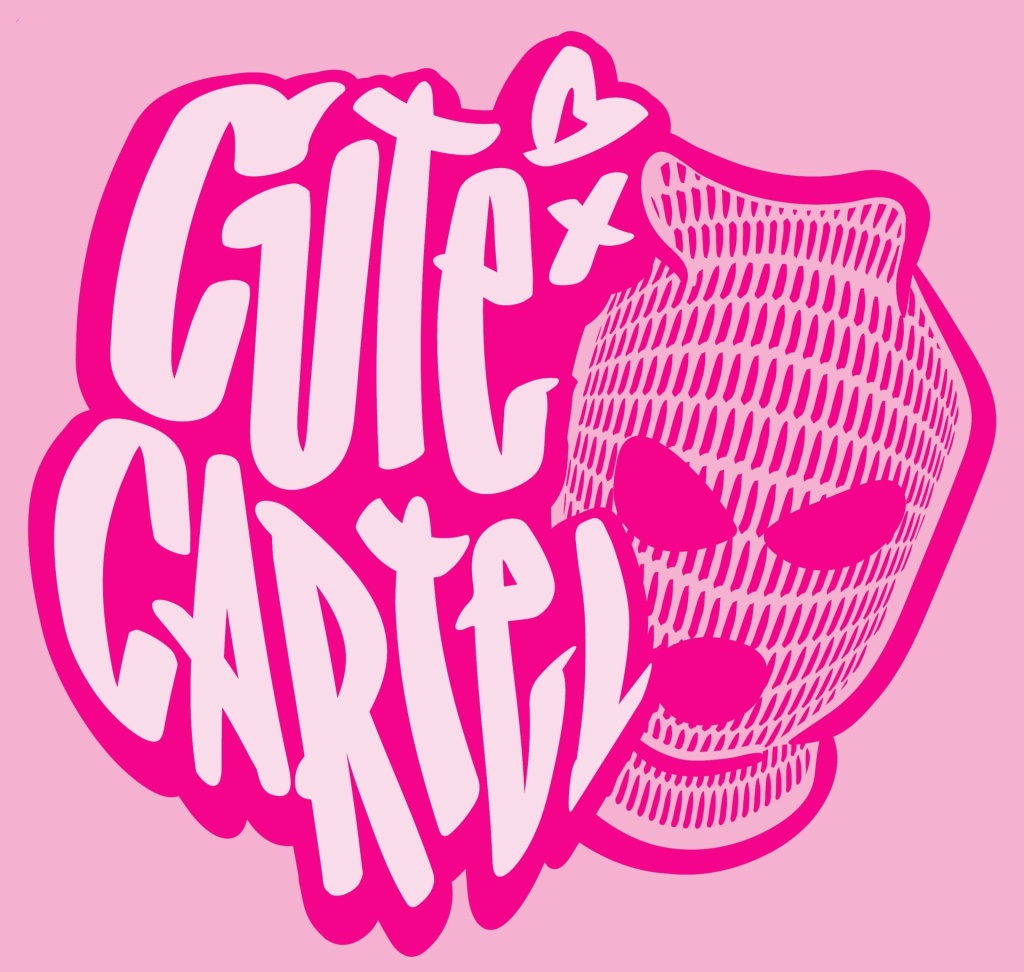
Cute Cartel
Sidonie is an artist who also graduated from UWE, a time that sparked a combination of her academic research and creative mastery of crocheting brought the Cute Cartel to life. The online community is described as ‘…a collective to raise awareness about abuse/trauma & provide support to those who have already suffered.’ Survivors can anonymously submit their stories which are then published on social media profiles, where readers can comment and show solidarity in their shared experiences. The collective is also an opportunity for people to join as performers and perform at local events and festivals.
How did the Cute Cartel come into being?
It was two things that sparked the making of Cute Cartel: anger and my research into the colour pink. Over the pandemic, I had a lot of anger about things that I had experienced. I channeled this anger into making art, making a lot of the outfits and weapons that the collective wear during performances today. I was also a lockdown student, so I was in the midst of my academic research into the colour pink: the connotations, the associations and also the stereotypes.
For Hallowe’en, I made a load of knitted balaclavas and weapons which I guess ended up being the first Cute Cartel outing. I also made an Instagram account: I’ve always been outspoken and about five years ago, I felt that people weren’t talking about sexual assault or using anywhere near the terminology we use today. So Instagram became a platform where I and other survivors could share their stories anonymously. For every post, I used a symbol of a balaclava-clad face to symbolise the collective way of thinking. In sharing the stories online, I made sure to include all aspects of trauma described yet include trigger warnings to give anyone reading the post a heads up. This page quickly became a source of comfort and support for those following us and interacting with the posts.
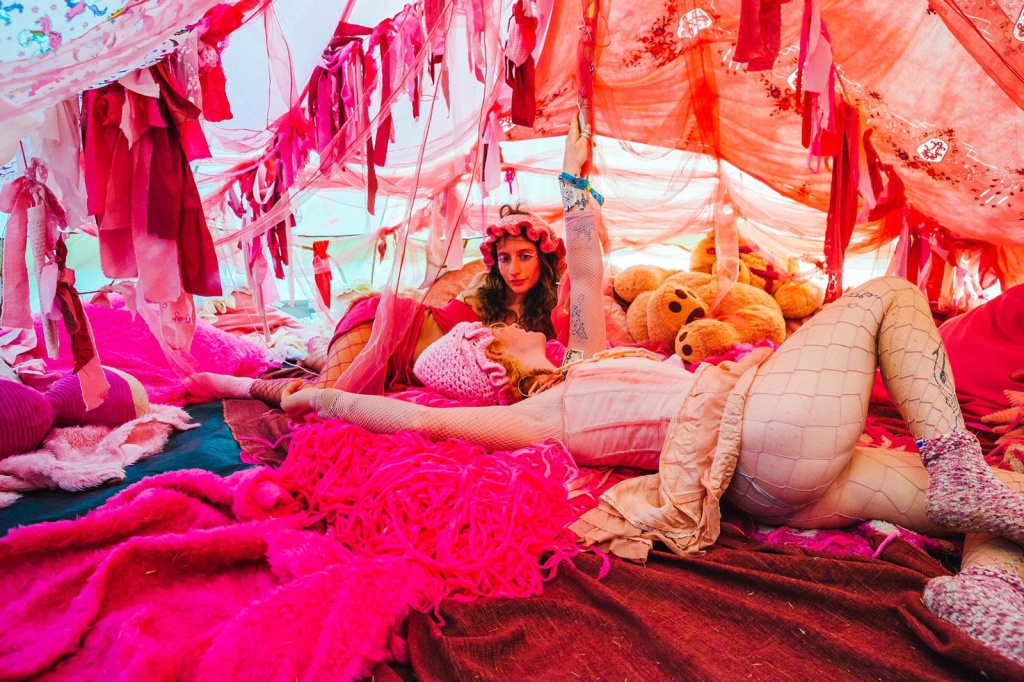
What are the challenges of creating a community online versus in person?
This is a positive example of creating community with an online platform such as Instagram because you can add trigger warnings and use visuals to tell a story that is once powerful yet leaves out painful details. Our pink and plushy aesthetic represents that support network we are for survivors that juxtaposes the dark reason that we are all in this collective, online and in person. Being a collective IRL presents challenges though too- from matching our outfits for performances, to navigating tough conditions at festivals where we as performers are often underpaid, given little support and unfortunately, we have experienced sexual harassment.
When I’ve heard the latter, it’s totally a projection of the viewer. And yet, we’ve never been shadowbanned or censored on social media.
It can also be difficult to welcome new people into our space. It’s often friends of friends who join us and we don’t have a dedicated social media manager, so most of our new recruits come through word of mouth. It’s not a bad thing overall, but it would be great to have more diversity to reflect the impact of the issue we stand for and offer our inclusive space to more survivors.
What do you hope that audiences get from Cute Cartel performances?
That we are open to everyone; because sexual assault and rape affects everyone, regardless of orientation, gender, ethnicity, background.
Our performances definitely lean into the power of being feminine- we reclaim our power and create an inclusive space of comfort for survivors, but also, a space for people to learn and spark a conversation about something that is still taboo. I think too many people are scared off and don’t engage with us out of fear, but everyone needs to be able to learn in order to change.
As part of our performances, we hand out pink cards to audience members with a handwritten note. Following a dance performance, receiving this card symbolises consent and how a Cute Cartel performer can invite you as an audience member to become part of creating change and awareness for survivors.
Are there audiences that are hard to reach?
At festivals, with the sheer amount of people, it can be difficult to gauge how the audience is feeling. We have a Cute Cartel Vagina, which is a performance area that can sometimes get very crowded and that can lead to our performers having issues with space. Some of us have had safeguarding training but it’s also part of the festival industry – we aren’t paid and we have no security, so sometimes in very overcrowded situations, we have to make the call to prioritise our own wellbeing and safety over a Cute Cartel performance.
On a personal level, I find lads are the hardest people to reach. It’s this mindset of ingrained misogyny that gives aggressive behaviour the green light and dismisses consensual sex that is this issue- and seems to be often linked to lad culture.
What have you gained from Cute Cartel?
Confidence. And an outlet for my feelings. Performing with Cute Cartel has not only brought me into a community of good friends who share similar life experiences, it has time and time again been a way for me to release anger, disconnect from situations and reconnect with a community that gives me comfort and community.
Looking to the future, what do you hope for with Cute Cartel?
I’m happy with not knowing or investing too much thought in it.
What I do hope for is the Cute Cartel becomes more closely linked with professional help so that survivors can get the help that they need.
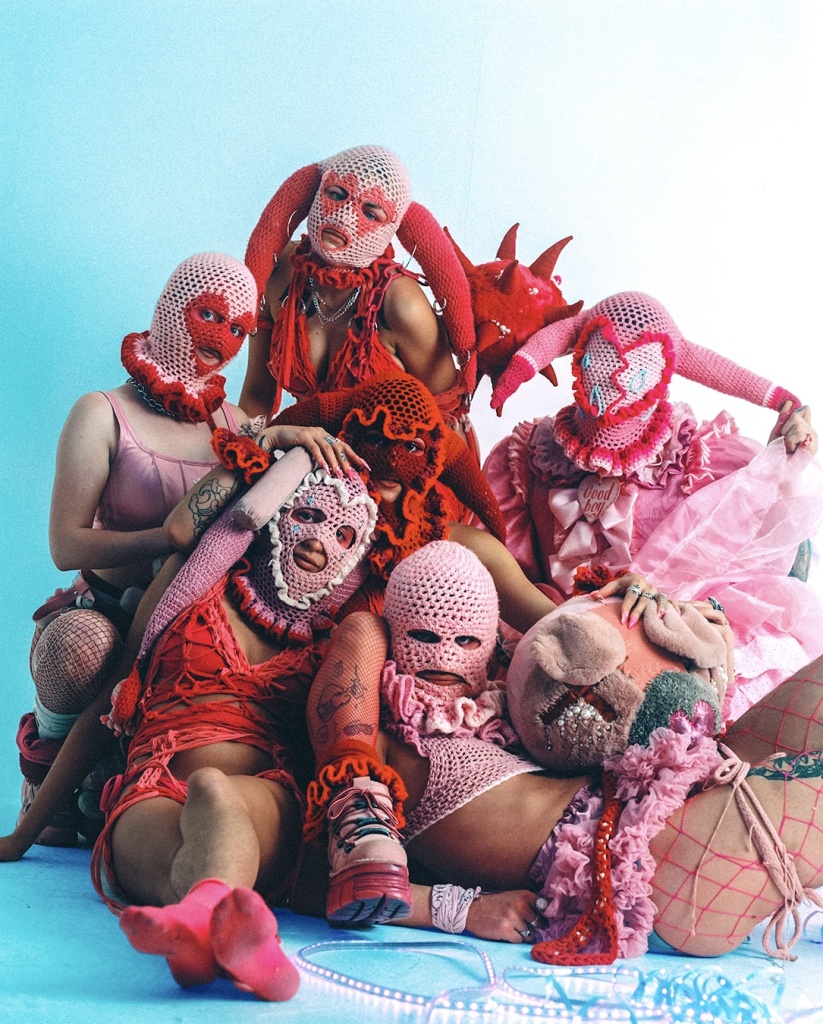
Both collectives are proof that the digital age does not need to spell loneliness, detachment and the standardisation of creative expression, by forging friendships and communities that celebrate authenticity and art as a way of life. As someone who is an Ever Glowing student and has experienced a Cute Cartel performance, I can attest to how refreshingly rebellious yet inclusive these collectives are.
These collectives are emblematic of the green shoots of grassroots passion; why not use the digital world as a springboard for creating a world we want to live in, as opposed to consuming endless versions of reality?
Out with the scroll, in with the new
Highlighting initiatives local to Bristol that offer resources and support for topics raised in this article:
Womankind Bristol: supports women in the Bristol area with professional counselling, group psychotherapy, befriending and a helpline service.
SARSAS: support for people affected by rape or any kind of sexual assault or abuse at any time in their lives.
SLEEC: survivor-led DIY action, mobilising and support organisation.


